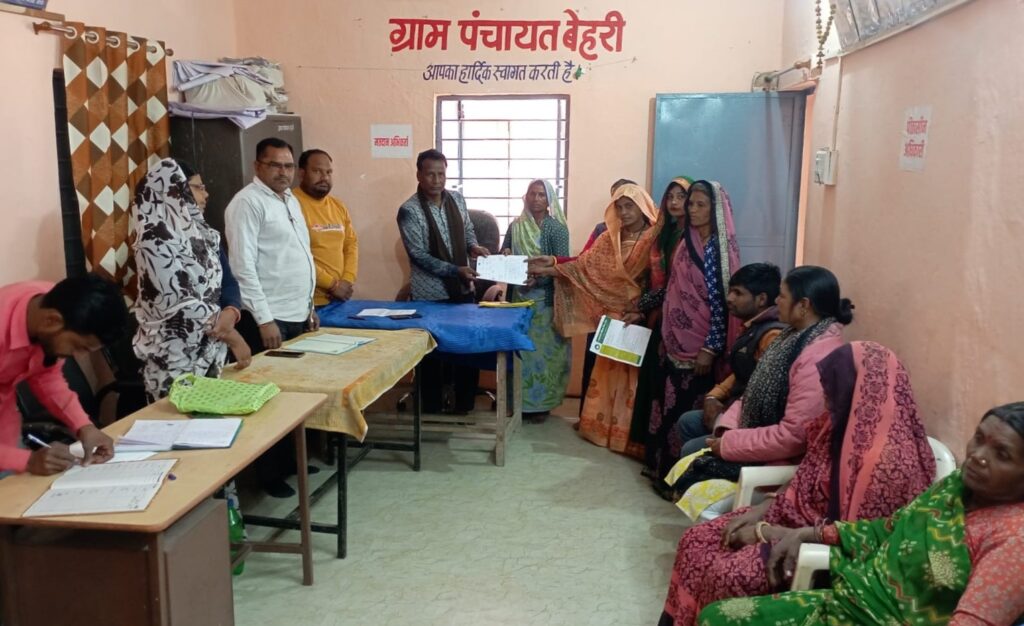For several years, Behri village under the Bagli Pragati Samiti (the local federation of self-help groups) had been facing difficulties with ration distribution. The man running the ration shop was usually in a drunken state. [1] More often than not, he would let the shop stay shut, else he would insist on providing two or three months’ rations at one go but would manipulate the weighing scales and cheat on the amounts he gave. Or he would take their thumb impressions and then tell them to come back later. The villagers complained repeatedly, but when the shopkeeper still did not change his ways the matter was flagged in the Hissedari Sabha. [2]।

Since the community at large was being affected, the Hissedari Sabha members also consulted their colleagues in Samaj Pragati Sahayog (SPS), the main organisation that facilitates the Sabhas. Everyone concerned agreed that the only solution lay in appointing someone else in place of the present distributor. In the Sabha meeting, when Jyoti Dhangar’s name came up as nominee, the villagers unanimously approved of the proposal. The Self Help Group (SHG) members all knew Jyoti well and, as an exemplary worker for SPS’s Health and Nutrition Programme, she had earned the village people’s trust. Encouraged by all to take on this new responsibility, she gave her assent. Then the Hissedari Sabha drafted an application letter proposing her name for the position of ration shop-in-charge, which was signed by all members present. At the Village Committee meeting held in January 2024, the leader of the Hissedari Sabha submitted the application to the Village Panchayat, and the Panchayat Secretary and Sarpanch (Village Head) sealed and signed the letter as proof of receipt.

Now the earlier shopkeeper began landing up at Jyoti’s home, accompanied by his cronies, and threatening her to make her withdraw her application for the post, but SPS’s representatives and members of the Hissedari Sabha intervened to protect Jyoti and control the situation. Their continuous support and attempts finally paid off when, in March, the Panchayat received a letter from the Public Distribution System (PDS) in the name of Jyoti Dhangar, appointing her at a monthly salary of Rs. 10, 400. And the members of the SHGs decided to take turns each month in helping Jyoti with the task of distributing rations. Finally, it must be mentioned that Jyoti Dhangar is the first woman from the village to be appointed as ration shop-in-charge – it is rare in the region for women to occupy this post.

[1] The government ration shops or the fair price shops provide staple food grains such as wheat, rice, sugar and essential fuels like kerosene at subsidised rates to the poor across India. This is part of the Public Distribution System (PDS), established by the government of India for food security. Irregularities or corruption in the distribution of ration adversely affect the everyday life of the poor.
[2] Hissedari Sabha: meetings organised by members of the Self Help Group (SHG) to discuss various issues of concern for their villages – such as access to drinking water, PDS shops, toilets, pension schemes, PM Awas Yojana, etc.
Writing: Karan Bachania
Source: Mamta Solanki
Photography: Mamta Solanki and Rahul Dhangar
